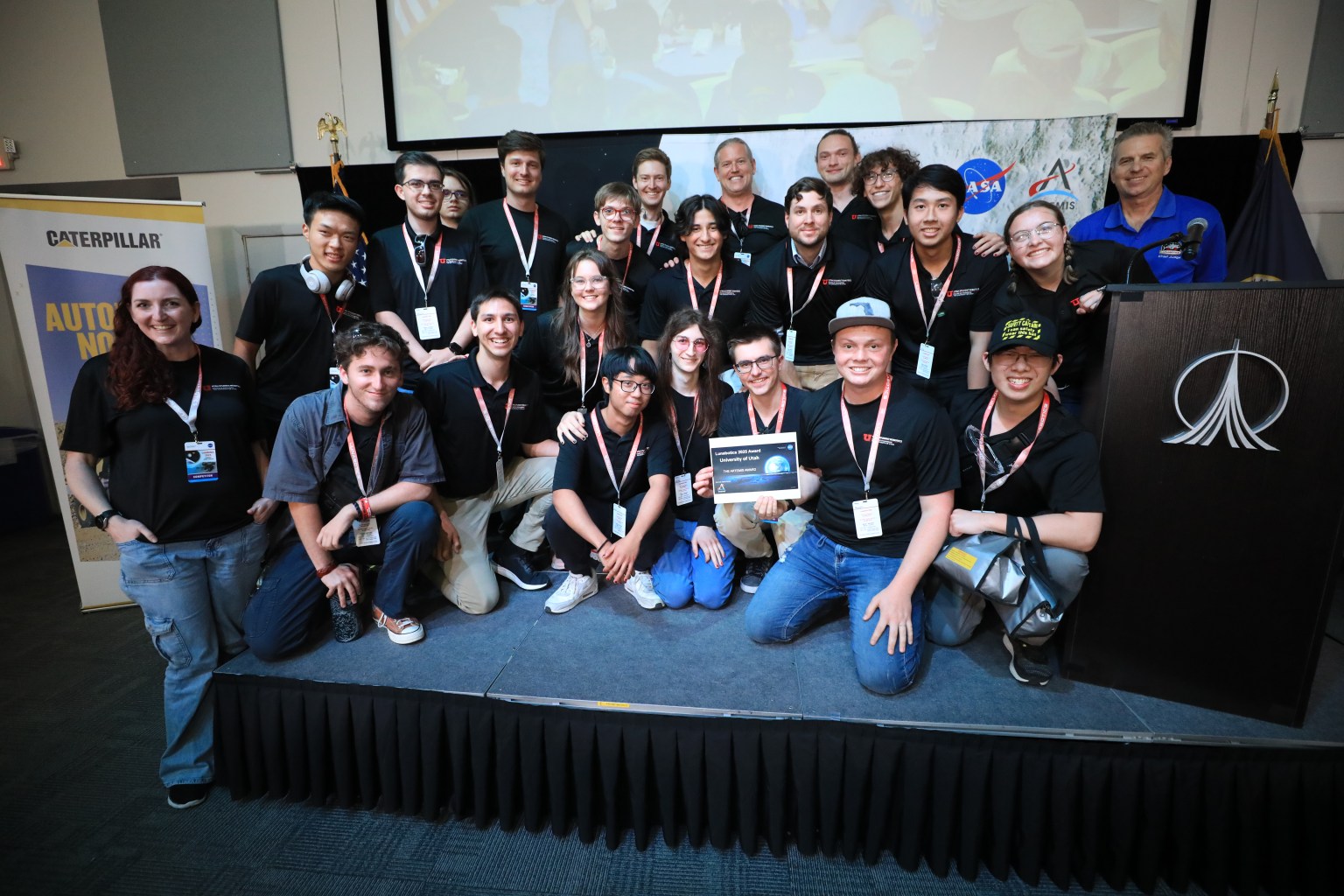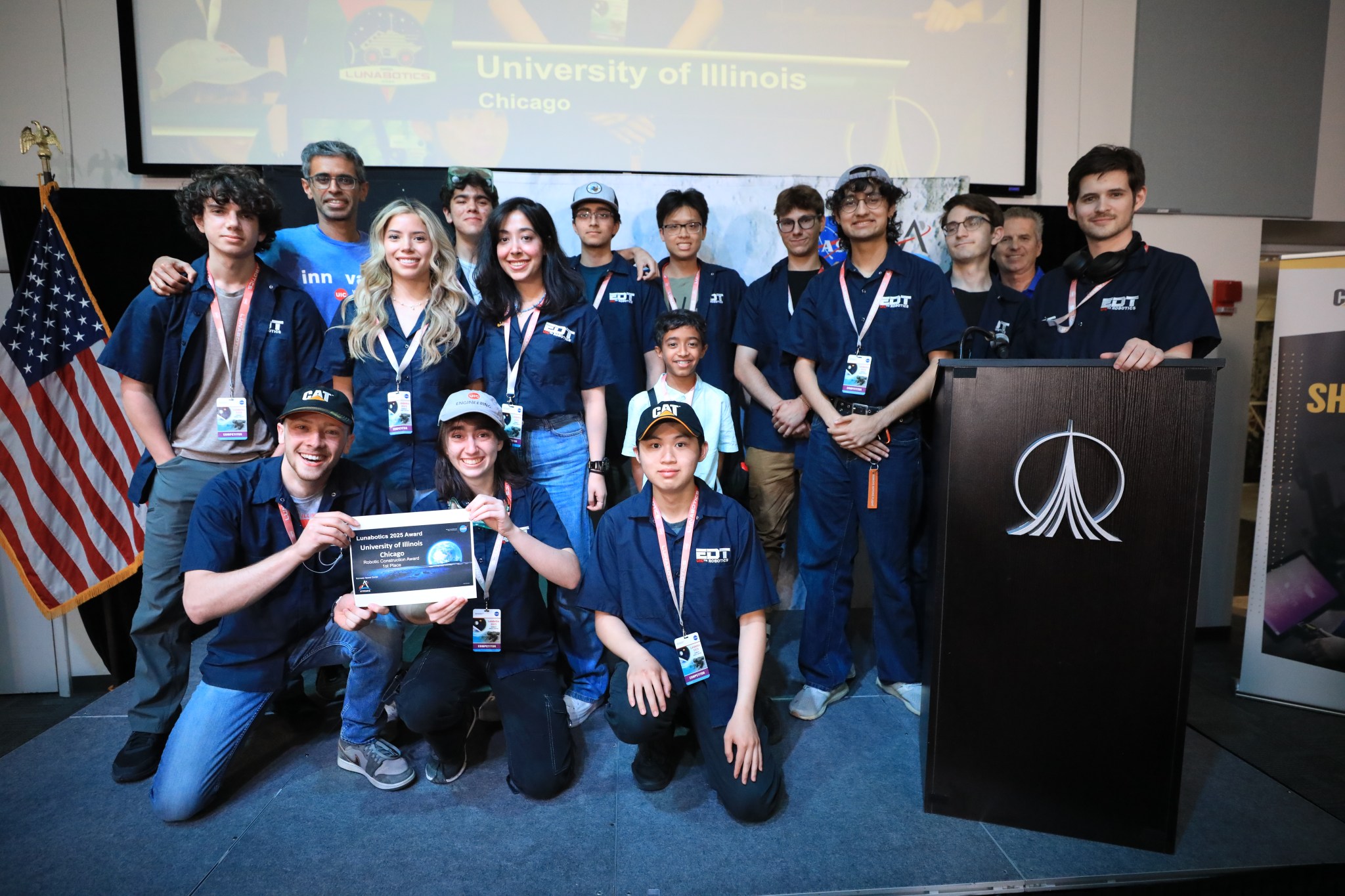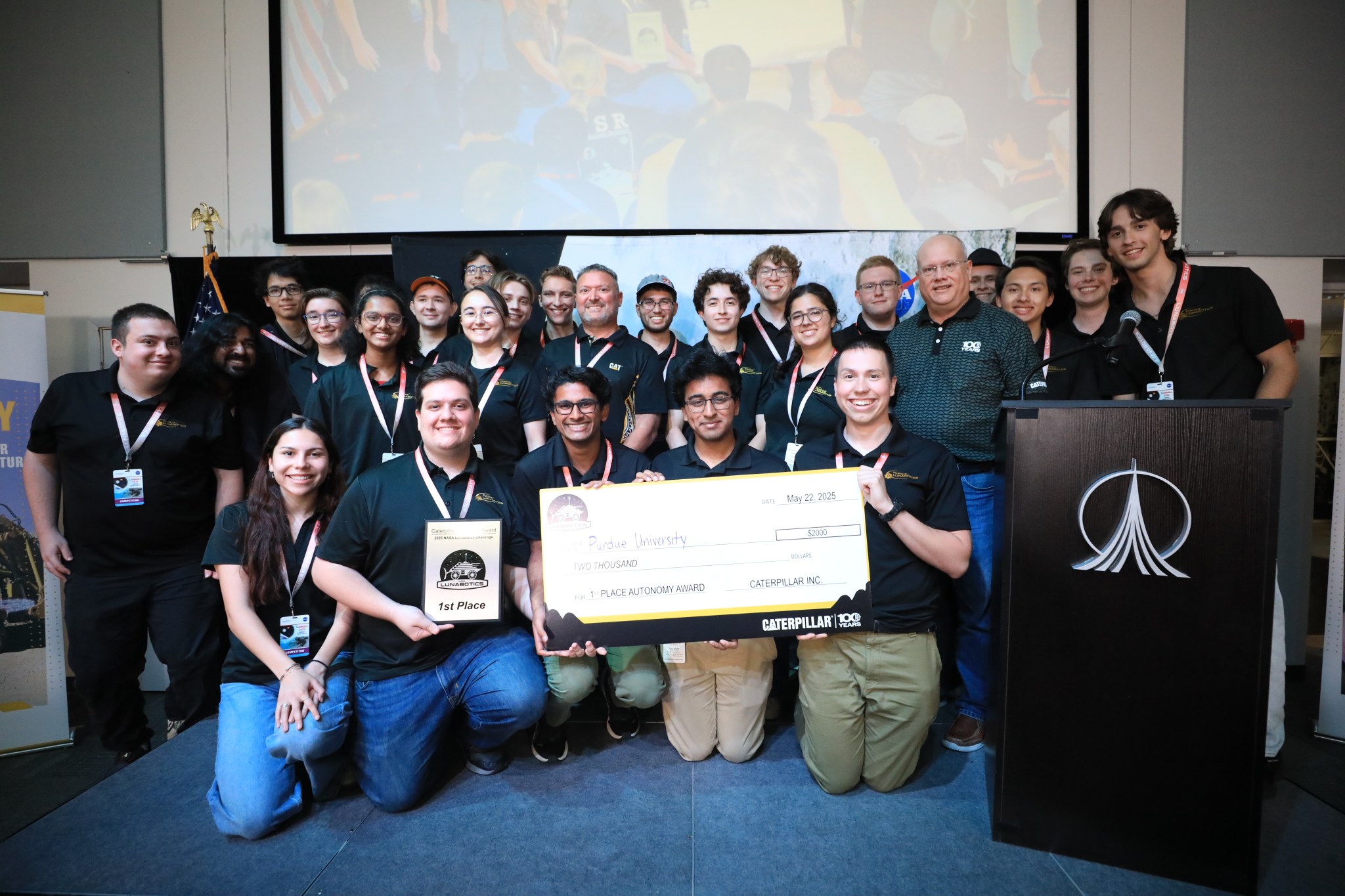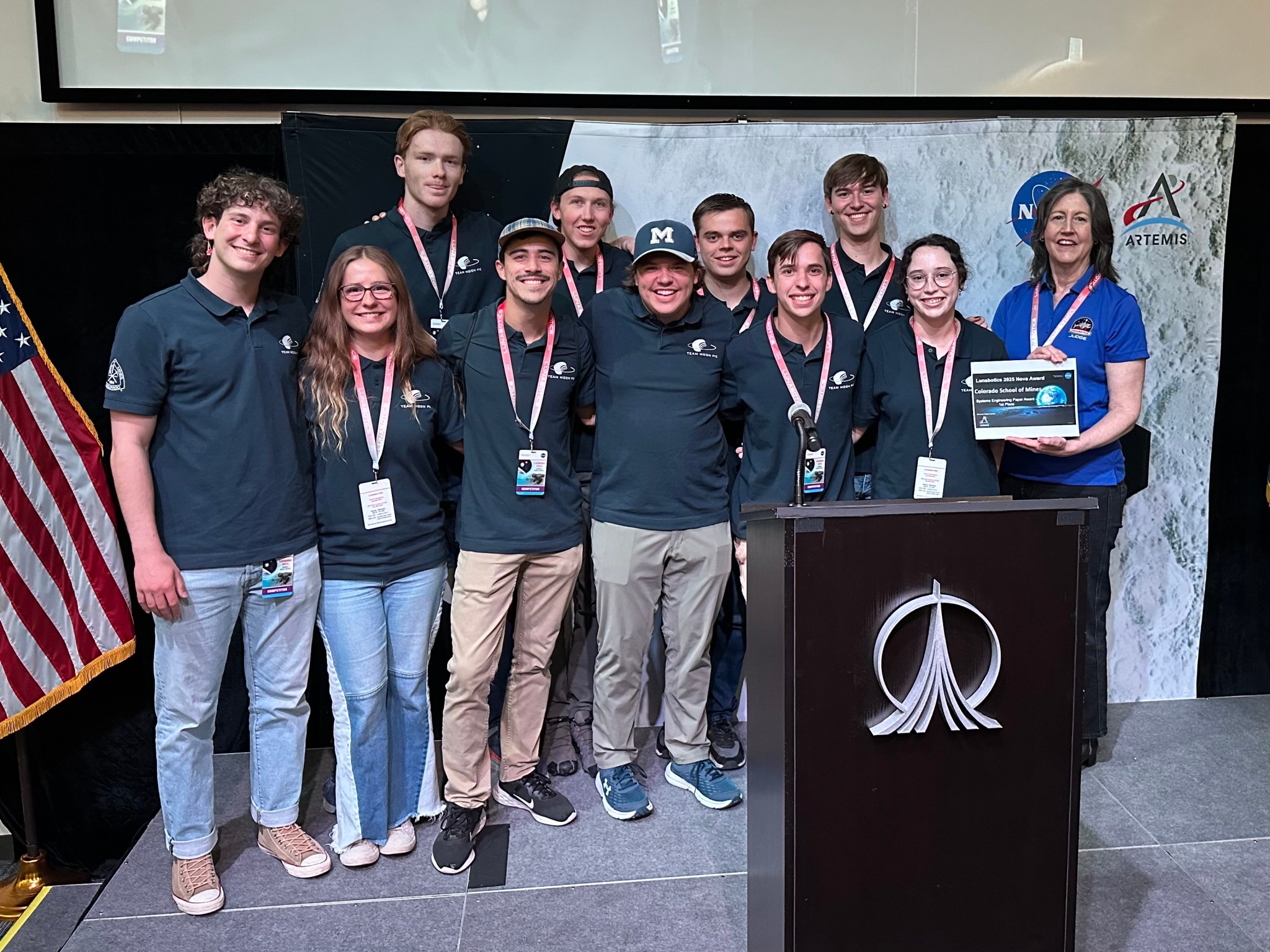
And the winner is… the University of Utah in Salt Lake City. The Utah Student Robotics Club won the grand prize Artemis Award on May 22 for NASA's 2025 Lunabotics Challenge held at The Astronauts Memorial Foundation's Center for Space Education at the Kennedy Space Center Visitor Complex in Florida.
"Win was our motto for the whole year," said Brycen Chaney, University of Utah, president of student robotics. "We had a mission objective to take our team and competition a step further, but win was right up front of our minds."
Lunabotics is an annual challenge where students design and build an autonomous and remote-controlled robot to navigate the lunar surface in support of the Artemis campaign. The students from the University of Utah used their robot to excavate simulated regolith, the loose, fragmented material on the Moon's surface, as well as built a berm. The students, who competed against 37 other teams, won grand prize for the first time during the Lunabotics Challenge.
"During the 16th annual Lunabotics University Challenge the teams continued to raise the bar on excavating, transporting, and depositing lunar regolith simulant with clever remotely controlled robots," said Robert Mueller, senior technologist at NASA Kennedy for Advanced Products Development in the agency's Exploration Research and Technology Programs Directorate, and lead judge and co-founder of the original Lunabotics robotic mining challenge. "New designs were revealed, and each team had a unique design and operations approach."

Other teams were recognized for their achievements: The University of Illinois Chicago placed first for the Robotic Construction Award. "It's a total team effort that made this work," said Elijah Wilkinson, senior and team captain at the University of Illinois Chicago. "Our team has worked long and hard on this. We have people who designed the robot, people who programmed the robot, people who wrote papers, people who wired the robot; teamwork is really what made it happen."
The University of Utah won second and the University of Alabama in Tuscaloosa came in third place, respectively. The award recognizes the teams that score the highest points during the berm-building operations in the Artemis Arena. Teams are evaluated based on their robot's ability to construct berms using excavated regolith simulant, demonstrating effective lunar surface construction techniques.
To view the robots in action from the Robot Construction Award winners, please click on the following links: University of Illinois Chicago, University of Utah, University of Alabama in Tuscaloosa.

NASA/Isaac Watson
Students from Purdue University in Lafayette, Indiana received the Caterpillar Autonomy Award for their work. The University of Alabama placed second, followed by the University of Akron in Ohio. This award honors teams that successfully complete competition activities autonomously. It emphasizes the development and implementation of autonomous control systems in lunar robotics, reflecting real-world applications in remote and automated operations.
An Artemis I flag flown during the Nov. 16, 2022, mission was presented to the University of Illinois Chicago, as well as the University of Virginia in Charlottesville as part of the Innovation Award. The recognition is given to teams for their original ideas, creating efficiency, effective results, and solving a problem.
Dr. Eric Meloche from the College of DuPage in Glen Ellyn, Illinois, and Jennifer Erickson, professor from the Colorado School of Mines in Golden each received an Artemis Educator Award, a recognition for educators, faculty, or mentors for their time and effort inspiring students.
The University of Utah received the Effective Use of Communications Power Award and the University of Virginia the agency's Center for Lunar and Asteroid Surface Science Award.

NASA/Isaac Watson
Students from the Colorado School of Mines placed first receiving a Systems Engineering Award. University of Virginia in Charlottesville and the College of DuPage in Glen Ellyn, Illinois, came in second and third places.






